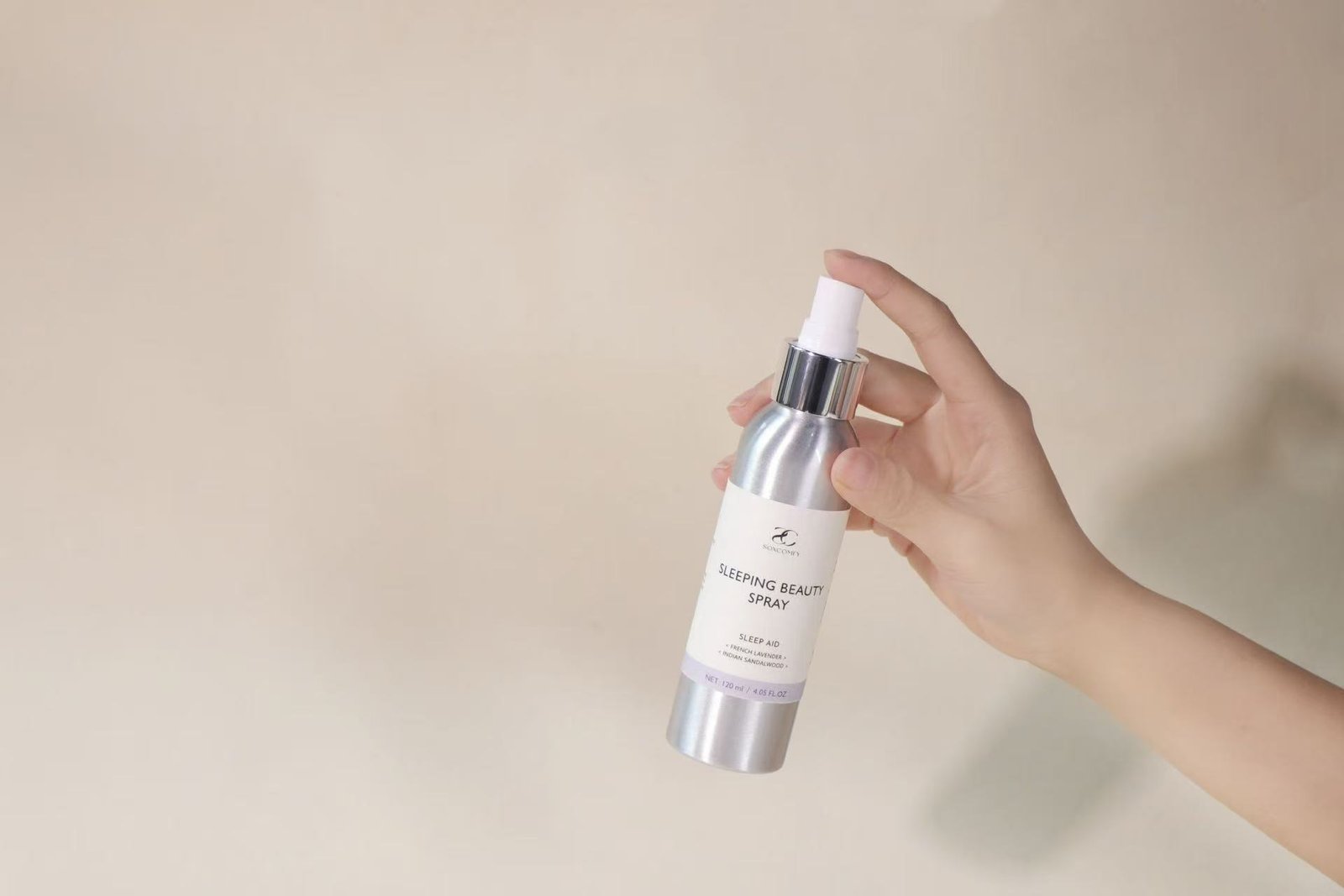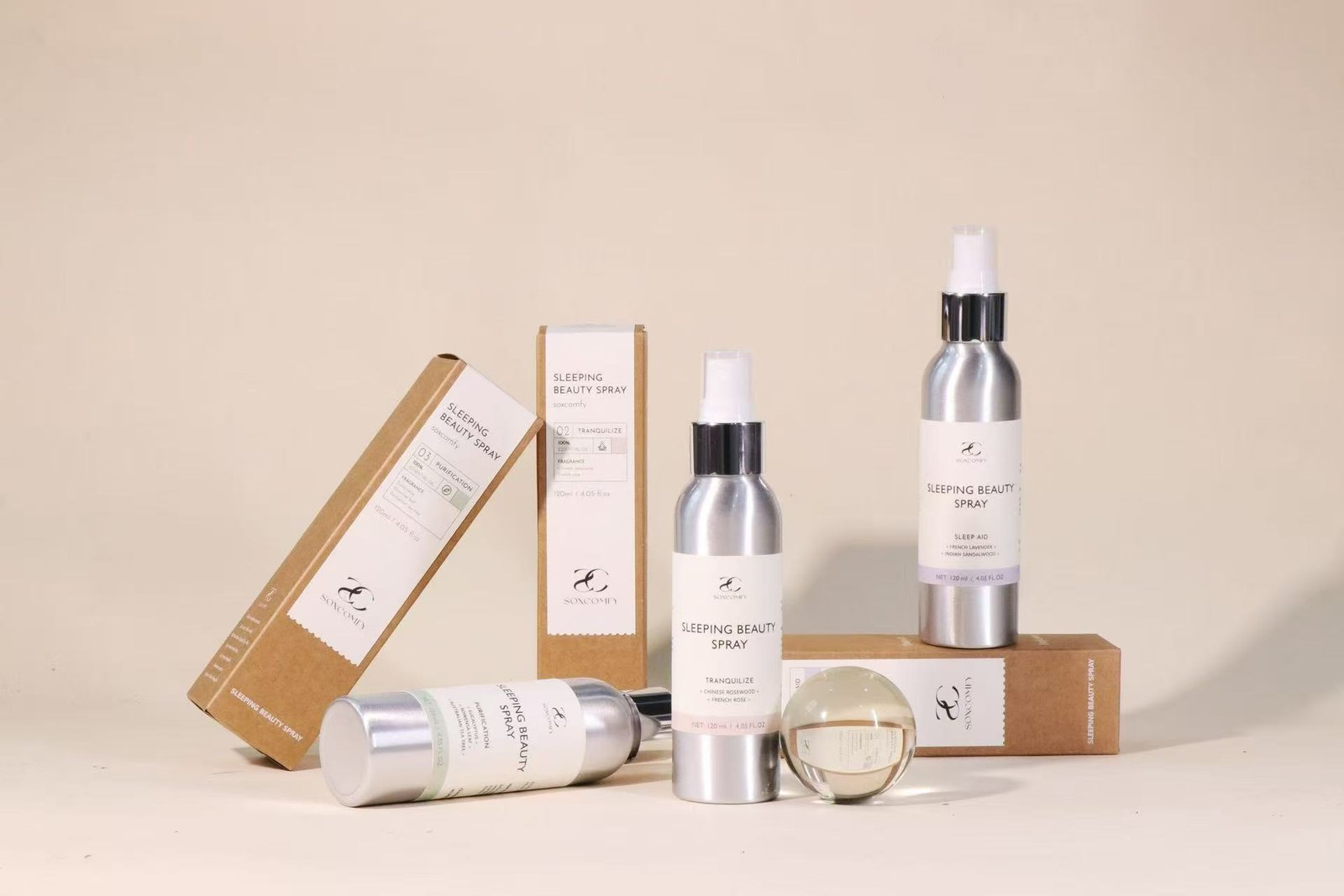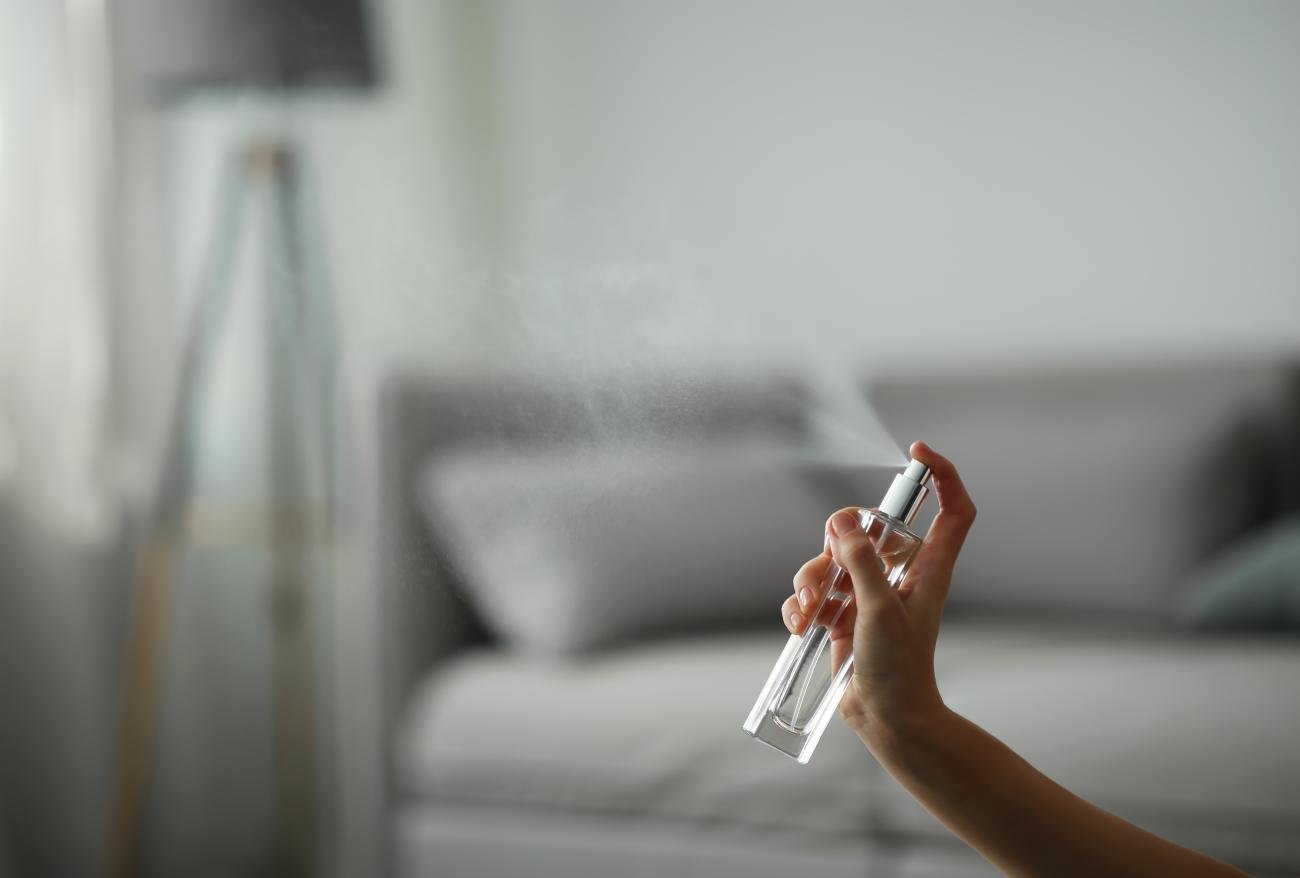You love that instant burst of freshness from a room spray. It’s quick, it’s easy, and it makes your space smell amazing. But then you start to wonder, "Am I using it too much? Or not enough?" It’s a common question, and getting it right can make all the difference between a perfectly scented room and an overwhelming one.
The ideal frequency for using room spray depends on several factors: the size of your room, the strength of the spray, your personal scent preference, and the presence of odors. Generally, use it as needed to refresh the air or mask unwanted smells, starting with one or two sprays and adjusting based on the intensity required.

I remember my friend Anita, who is a national brand buyer. She’s super efficient and always on the go. One day, she was trying out a new strong room spray in her office. She called me, laughing, saying she had accidentally oversprayed and her eyes were watering! We had a good laugh, and it became a great example of how getting the frequency right is key. It’s not about how often you should use it by a fixed rule, but rather how often you need to for the perfect balance. Let’s dig into the details.
Does Room Size Affect Usage?
Absolutely, the physical space you’re trying to scent is a primary factor in how much and how often you should use room spray.
Yes, room size significantly affects how often and how much room spray you should use. Larger rooms require more sprays to distribute the fragrance effectively, while smaller spaces need much less to avoid overpowering the area. Adjusting based on square footage ensures optimal scent diffusion without oversaturation.

Let’s look at how room size changes things.
For Large Rooms and Open Spaces
Think about open-plan living areas. Or a large master bedroom. These spaces have a lot of air volume. A single spray might just dissipate quickly. It won’t leave much scent behind. For bigger rooms, you will need more sprays.
- Start with more: Begin with 3-5 sprays. Aim to spray towards the center of the room. Or spray towards soft furnishings like curtains or rugs. These can hold the scent.
- Wait and assess: Give the spray about 30 seconds to a minute to disperse. Then check the scent level.
- Add if needed: If the scent is still too light, add another 1-2 sprays. Make sure to walk around the room. This helps you get a true sense of the overall scent presence.
The goal is to gently fill the space. You don’t want a strong burst of scent in one spot. Our clients, like large brand companies who distribute to various channels, understand this. They know that a pleasant, subtle scent throughout a large retail space is more inviting than an overpowering one in just a small area. This is why our diverse product range provides different strengths and dispersal methods, supporting varied needs.
For Small Rooms and Enclosed Areas
Now, consider a small bathroom. Or a walk-in closet. These spaces are enclosed. They have less air volume. Fragrance builds up quickly here. Using too much can make the scent overwhelming. It might even cause irritation.
- Less is more: Start with just 1 spray. Or maybe 2 at most.
- Target the air: Aim the spray into the center of the room. Don’t spray directly onto surfaces.
- Ventilation: If the room has poor ventilation, start with even less. You can open a window for a few moments after spraying. This prevents the scent from becoming stagnant.
For very small spaces, like a car, sometimes a single, light mist is enough. The key is to avoid saturating these smaller areas. An over-scented small room can be very uncomfortable.
Does Scent Strength and Personal Preference Matter?
Yes, the specific room spray you use and your own nose play a huge role.
Yes, both the initial scent strength of your room spray and your personal preference significantly dictate how often you should use it. A highly concentrated spray requires fewer applications, while a subtle scent might need more frequent use. Ultimately, the best frequency aligns with your desired aroma intensity and individual sensitivity.

Let’s break down these subjective factors.
The Intensity of the Spray Itself
Not all room sprays are made equal. Some are very concentrated. They release a lot of scent with just one pump. Others are lighter. They need more sprays to reach the same level of fragrance.
- Read the label: Check if the manufacturer gives any guidance. Some might suggest "1-2 sprays for a quick refresh."
- Test it out: The first time you use a new spray, start very small. Do one spray. See how it performs. Then you can adjust for next time.
- Know your product: Over time, you will learn the strength of your favorite room sprays. You will know if it is a "one-and-done" kind of spray or if it needs a few more pumps.
As a professional manufacturer, ENO ensures our room sprays clearly indicate their concentration. This helps users like Lisa, who sources products for her brand, choose the right intensity for her specific product line.
Your Personal Threshold and Desired Atmosphere
This is very subjective. What one person finds perfectly scented, another might find too strong or too weak.
- Subtle vs. noticeable: Do you want just a hint of fragrance? Or do you want a clearly noticeable aroma? Adjust your sprays based on this.
- Sensitivity: Some people are more sensitive to certain scents. Or they might get headaches from strong perfumes. If you are sensitive, always use less first.
- Purpose: Are you using it for a quick pick-me-up? Or to set a mood for guests? A quick refresh might need just one spray. Setting a mood might need a few more.
I personally prefer a subtle scent in my home. So, I tend to use fewer sprays. My sister, on the other hand, loves a strong, noticeable fragrance, so she uses more. There is no wrong answer here. It is about what you like for your space.
Do Odors and Activities Affect Frequency?
Yes, the presence of specific odors and the activities happening in your room are major drivers for how often you pick up that room spray.
Yes, the presence of unwanted odors and ongoing activities in a room strongly influence how often you should use room spray. Heavier odors or active environments like cooking areas might require more frequent applications, while a quiet, less trafficked room will need much less to maintain freshness.

Let’s look at how odors and activities change how you use room spray.
Combatting Unwanted Odors
This is where room sprays shine. They are excellent for quick odor elimination.
- Cooking smells: After making a strong-smelling meal (like fish or garlic), your kitchen can hold onto those scents. A few sprays can quickly neutralize these. You might use it immediately after cooking. Or a few hours later if the smell lingers.
- Pet odors: If you have pets, occasional sprays help keep things fresh. You might spray daily in areas where your pet spends a lot of time. Or just when you notice a specific "pet smell."
- Bathroom refresh: This is a classic use case. A quick spray after use can make the bathroom pleasant for the next person. In this situation, you might use it multiple times a day, but only one quick spray at a time.
- Stale air: If a room has been closed up for a while, it can feel stuffy. A few sprays can instantly revive the air. This might be a once-a-day thing or just when you enter the room.
For targeted odor removal, you use it as needed. This could be multiple times a day for small, high-traffic areas. Or perhaps once a week for a less used room.
Refreshing After Activities
Certain activities can leave a lingering scent. Or you just want to refresh the general atmosphere.
- Guests leaving: After hosting a gathering, you might want to refresh the living room. Or clear the air of food smells.
- Exercise: If you have a home gym area, a spray can refresh it after a workout.
- Cleaning: After cleaning a room, a room spray can add a final touch of fresh scent. It makes the room feel truly clean.
- Starting the day: Some people like a little spritz in their bedroom or office as part of their morning routine. This sets a positive tone for the day.
In these cases, the frequency is tied to the activity. You use it after an event or when you feel the room needs a specific boost. It is not on a fixed schedule. It is more about responding to the environment. Our varied range of room sprays allows brands to offer specific solutions for different needs—be it pet owners or busy professionals.
Does Ventilation and Air Flow Play a Role?
Yes, how well your room breathes can significantly impact how often you need to spray.
Yes, rooms with poor ventilation or limited air flow retain scents longer, meaning you may need less frequent room spray applications. Conversely, well-ventilated rooms with good air circulation might require more regular or concentrated sprays as the fragrance dissipates faster, influencing overall scent longevity and optimal usage.

Let’s look at how air movement affects your spraying habits.
Rooms with Poor Ventilation
Think about a small, interior bathroom without a window, or a closet. These spaces don’t get much fresh air. When you spray air freshener, the scent tends to linger. Because the air is not moving much, the fragrance molecules stay suspended for a longer time.
- Less frequent: You will likely need to spray less often in these areas. The scent will build up and remain.
- Smaller amount: You also need fewer sprays each time. A single spray might be enough.
- Risk of overwhelming: Be careful not to overspray. The scent can become trapped and feel too strong. This can be unpleasant.
In such areas, the spray’s effect lasts longer. This means you won’t need to reapply it as frequently.
Rooms with Good Ventilation
Now consider a large living room with open windows. Or a room with a ceiling fan. These spaces have good air circulation. The air is constantly moving. This helps dissipate scents. While this is good for preventing stuffiness, it means your room spray’s effect might not last as long.
- More frequent (if desired): If you want a consistent scent, you might need to spray more often. Or increase the number of sprays each time.
- Scent dissipates faster: The fragrance molecules are carried away by the moving air. So, the room might lose its scented feel quicker.
- Consider purpose: If you are just doing a quick refresh for an immediate boost, then good ventilation is fine. If you want a lasting aroma, you might need a different strategy. You might need to combine the room spray with a continuous diffuser.
For areas with good airflow, the "as needed" rule becomes even more important. You use it when you want that instant burst, knowing it might fade faster. The goal is to match the spray to the room’s natural air exchange.
Conclusion
The "right" frequency for using room spray is not a fixed number. It is a flexible approach based on your room’s size, the spray’s strength, your personal scent preference, the odors present, and the room’s ventilation. Start with less, adjust as needed, and always trust your nose. By considering these factors, you can effectively use room spray to maintain a fresh, inviting aroma that perfectly suits your space and your preferences, without ever overdoing it.





